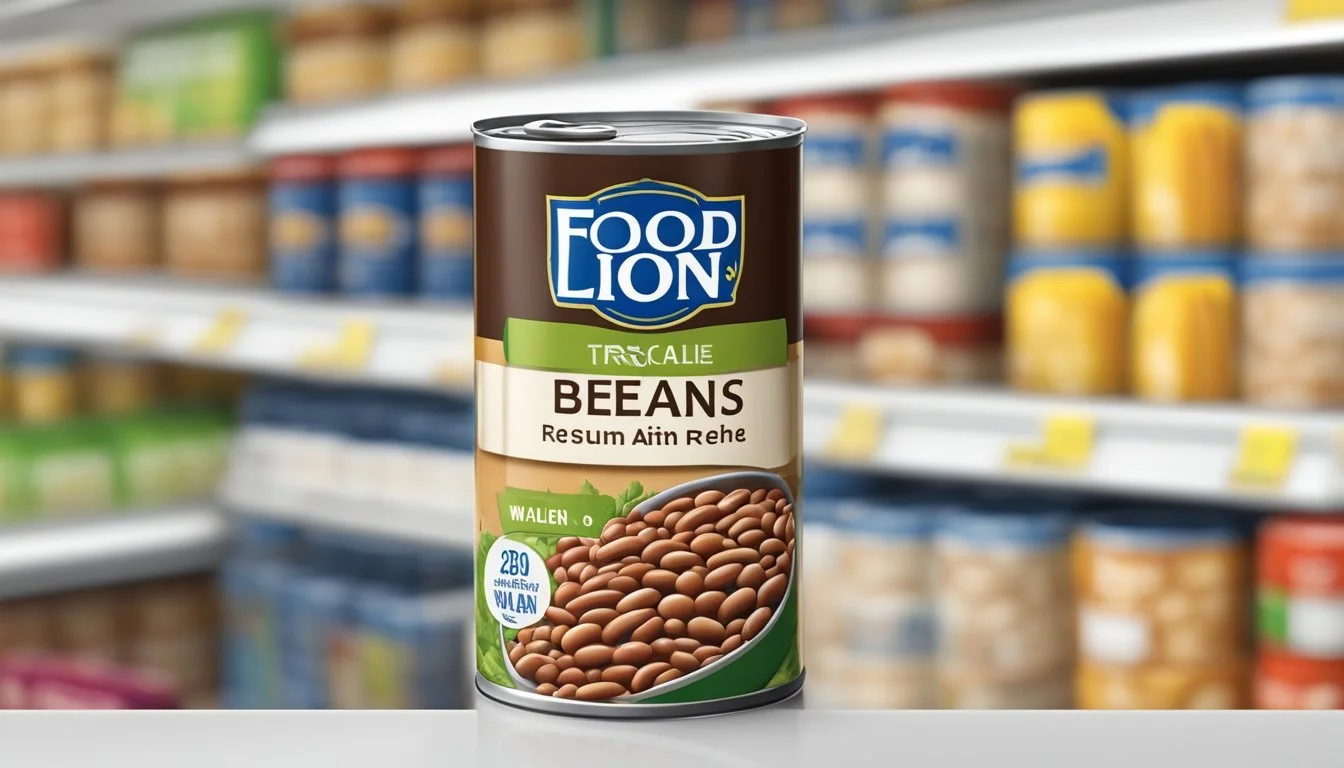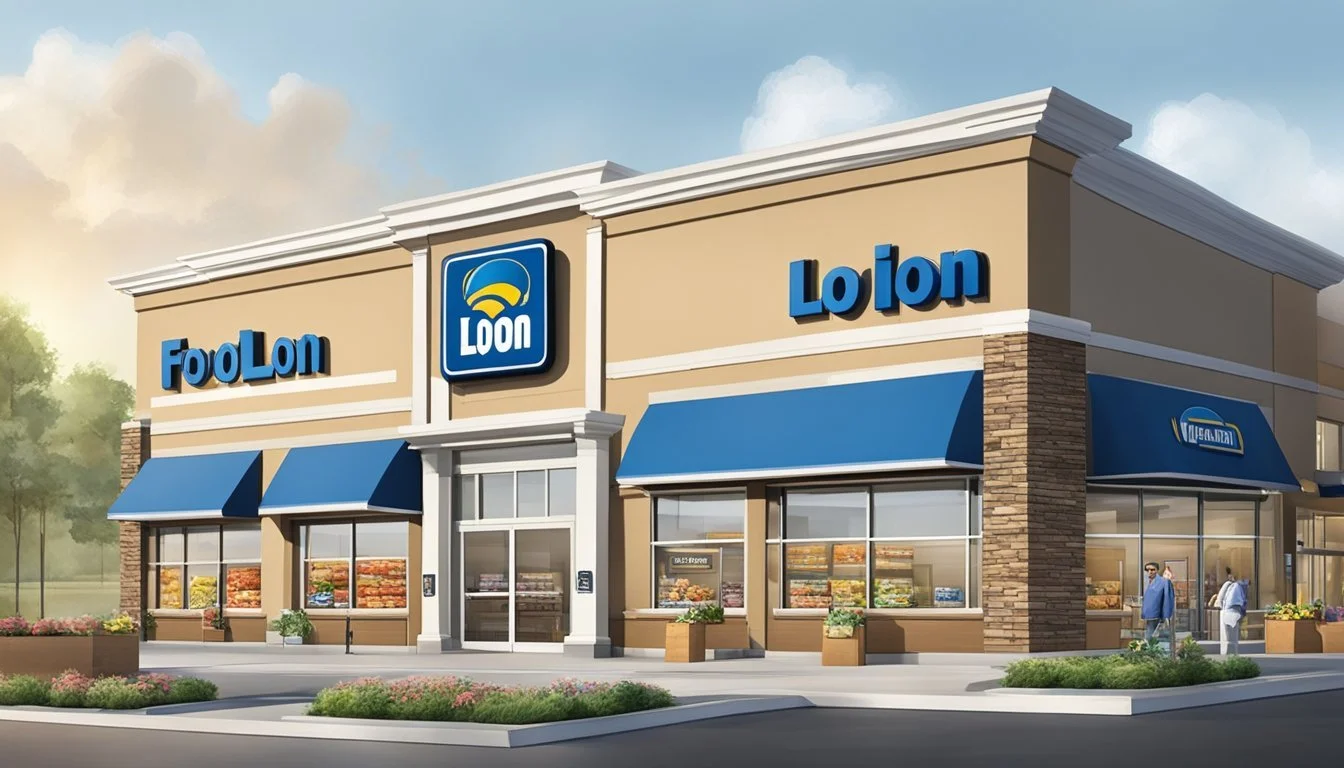Is Food Lion Cheaper Than Walmart?
A Price Comparison of Two Popular Grocery Chains
Grocery shopping can be a significant expense for many households, making it crucial to find the most cost-effective options. Two popular retailers, Food Lion and Walmart, often come up in discussions about affordable grocery shopping. Both stores have their strengths and loyal customer bases.
While Walmart generally offers lower prices on many items due to its massive buying power, Food Lion can be cheaper for certain products, especially fresh produce, dairy, and meats. Food Lion also frequently runs promotions and offers loyalty programs that can lead to substantial savings for regular customers.
The best choice between Food Lion and Walmart may depend on individual shopping needs, location, and specific product preferences. Savvy shoppers can benefit from comparing prices, taking advantage of store-specific deals, and considering factors beyond just cost, such as product quality and store convenience.
Comparative Analysis of Food Lion and Walmart
Food Lion and Walmart offer distinct shopping experiences for grocery buyers. Their differences span pricing strategies, product offerings, and store-branded items.
Price Comparison between Food Lion and Walmart
Walmart often edges out Food Lion on overall pricing due to its immense purchasing power. Many everyday items cost less at Walmart, especially non-perishables and household goods. Food Lion, however, can be competitive in certain categories.
Food Lion frequently runs promotions and offers a loyalty program that can significantly reduce prices for regular shoppers. These deals sometimes make Food Lion the more economical choice for specific items or shopping trips.
Walmart's consistent low pricing appeals to budget-conscious consumers looking for predictable savings across their entire shopping list. Food Lion's fluctuating promotions may benefit shoppers willing to plan around sales.
Product Selection and Availability
Walmart boasts a wider selection of products due to its larger store formats. Shoppers find an extensive range of groceries alongside general merchandise, electronics, and clothing.
Food Lion focuses primarily on groceries and household essentials. This specialized approach means a more curated selection of food items, often with an emphasis on local and regional products.
Walmart's broader inventory can be convenient for one-stop shopping. Food Lion's targeted grocery focus may appeal to those seeking a quicker, more focused shopping experience.
Quality and Freshness of Produce and Meats
Food Lion often excels in the quality and freshness of produce and meats. Their smaller store format and focus on groceries allows for more frequent restocking and turnover of perishable items.
Walmart's produce quality can vary by location. Some stores have improved their fresh offerings in recent years, but consistency across all locations remains a challenge.
Both chains strive to maintain quality standards, but Food Lion's specialized grocery focus often translates to a slight edge in this category.
Store Brand vs. Name-Brand Products
Walmart's "Great Value" brand spans a wide range of products, often priced significantly lower than name-brand alternatives. The extensive selection of store-brand items covers most grocery categories.
Food Lion's "Nature's Promise" and "Food Lion" brands offer a more limited but growing selection of private-label products. These items are competitively priced and focus on staple grocery items.
Both chains' store brands provide savings compared to name-brand equivalents. Walmart's broader private-label range gives shoppers more options to save across various product categories.
Discounts and Savings Options
Both Food Lion and Walmart offer various ways for customers to save money on their grocery purchases. These options include weekly deals, loyalty programs, coupons, and seasonal promotions.
Deals and Weekly Specials
Food Lion features "MVP Savings" with new deals every Wednesday. These specials often include buy-one-get-one-free offers and discounts on popular items.
Walmart runs "Rollback" prices on select products, reducing prices for extended periods. Their "Great Value" store brand also provides everyday low prices.
Both stores publish weekly ads online and in print, highlighting current deals. Food Lion's circular tends to focus more on grocery items, while Walmart's includes a broader range of products.
Loyalty Programs and Rewards
Food Lion's MVP Card is free to join and offers exclusive discounts. Members earn "Shop & Earn" rewards monthly, which can be redeemed for savings on future purchases.
Walmart+ is a paid membership program that provides benefits like free shipping, fuel discounts, and mobile scan-and-go shopping. While it doesn't offer direct grocery discounts, the perks can lead to overall savings.
Food Lion's program is more geared towards grocery savings, while Walmart+ offers broader benefits across various shopping categories.
Coupons and Digital Coupons
Both retailers accept manufacturer coupons and offer digital coupon options through their mobile apps or websites.
Food Lion's MVP Card allows customers to load digital coupons directly to their account. These can be combined with paper coupons for additional savings.
Walmart's app features "Walmart Coupons" that can be added to a digital wallet and applied at checkout. They also offer a Savings Catcher feature that compares prices with local competitors.
Digital coupons at both stores are typically easier to use and don't require printing or clipping.
Seasonal Promotions and Specials
Food Lion runs themed promotions throughout the year, such as "Summer Savings" or "Holiday Meal Deals." These often include discounts on seasonal produce and holiday staples.
Walmart is known for major sales events like "Black Friday" and "Back to School" specials. They also offer seasonal discounts on items like grilling supplies in summer or baking goods during the holidays.
Both stores tend to mark down seasonal items after major holidays, providing opportunities for savvy shoppers to stock up for the following year at reduced prices.
Shopping Experience and Services
Food Lion and Walmart offer distinct shopping experiences and services. Each retailer has its own approach to customer service, online options, and in-store convenience.
Customer Service and Support
Food Lion emphasizes personalized service in its smaller stores. Employees often know regular customers by name and can provide individualized assistance. The company trains staff to be knowledgeable about product locations and promotions.
Walmart focuses on efficiency and availability. With more staff members per store, customers can usually find help quickly. The retailer offers a satisfaction guarantee on most items, allowing easy returns and exchanges.
Both chains provide customer service desks for returns, refunds, and general inquiries. Food Lion's MVP rewards program offers personalized deals and fuel points. Walmart's Savings Catcher app automatically refunds price differences if a local competitor advertises a lower price.
Online Shopping and Delivery Options
Walmart leads in e-commerce capabilities. The retailer offers grocery pickup at most locations and home delivery in many areas. Their app allows for easy reordering of frequently purchased items.
Food Lion has expanded its online presence. Many locations now offer curbside pickup through the Food Lion To-Go service. Home delivery is available in select markets through third-party partnerships.
Both chains provide digital weekly ads and the ability to create shopping lists online. Walmart's broader inventory allows for a wider range of products available for online purchase and delivery.
In-Store Experience and Convenience
Food Lion stores are typically smaller and easier to navigate. The chain focuses on essential items and local products. Store layouts prioritize quick trips and convenience.
Walmart Supercenters offer a one-stop shopping experience. Customers can purchase groceries, household items, electronics, and clothing in a single visit. Many locations are open 24 hours.
Food Lion emphasizes fresh produce and meats, often sourcing from local farms. Walmart's larger stores allow for more variety in each product category.
Both retailers offer self-checkout options to reduce wait times. Food Lion's smaller footprint means shorter walks from car to store. Walmart's expansive parking lots can accommodate more customers but may require longer walks.
Corporate Policies and Commitments
Walmart and Food Lion have distinct approaches to pricing strategies and environmental initiatives. These policies impact customer savings and product selection.
Price Matching Policies and Price Adjustments
Walmart offers a comprehensive price matching policy. They match prices from local competitors and select online retailers. Customers can request price matches at the register before purchase. Walmart also provides a 14-day price adjustment on most items.
Food Lion's price matching is more limited. They typically match prices from printed weekly ads of local competitors. Their policy excludes online retailers. Food Lion does not have a formal price adjustment policy after purchase.
Both stores have exceptions for their price matching. These may include clearance items, percentage-off sales, and limited-time offers. Customers should check current policies, as they can change.
Sustainability and Organic Product Offerings
Walmart has made significant commitments to sustainability. They aim to achieve zero waste in their operations. The company is working towards 100% renewable energy use. Walmart offers a growing selection of organic products under their Great Value Organic brand.
Food Lion focuses on local sustainability efforts. They have a food rescue program to reduce waste. The company partners with local farmers to source produce. Food Lion's Nature's Promise line includes organic and natural products.
Both retailers have expanded their organic offerings in recent years. This reflects growing consumer demand for healthier options. Walmart's scale allows for lower prices on some organic items. Food Lion emphasizes locally-sourced organics where possible.
Consumer Considerations
Shoppers weigh various factors when choosing between Food Lion and Walmart for grocery purchases. Price, convenience, and product selection play key roles in determining which store offers the best value for individual needs.
Budget-Friendly Shopping for Cost-Conscious Customers
Food Lion often provides competitive pricing on fresh produce, dairy, and meats. Their MVP card offers additional savings through weekly specials and personalized coupons. Walmart's everyday low prices appeal to many budget-conscious shoppers, especially for non-perishable items and household goods.
Both stores frequently run promotions, making price comparisons essential for maximizing savings. Food Lion's "Fresh Ideas" program highlights affordable meal solutions, while Walmart's rollback prices can offer significant discounts on various products.
Smart shoppers can stretch their dollars by utilizing store apps, digital coupons, and loyalty programs at both retailers.
Accessibility and Location Preferences
Food Lion typically operates smaller, neighborhood-focused stores. This format often translates to quicker shopping trips and closer proximity for many customers. Walmart's supercenters, while fewer in number, offer one-stop shopping for groceries and other merchandise.
Rural areas may find Walmart more accessible due to its broader geographic presence. Urban and suburban shoppers might prefer Food Lion's more numerous locations for convenience.
Store hours vary, with many Walmart locations open 24/7, providing flexibility for night shift workers or late-night shoppers. Food Lion generally maintains extended hours but may close earlier in some areas.
Comparison with Other Grocery Stores
When considering alternatives, Aldi and Lidl often undercut both Food Lion and Walmart on prices for many items. Kroger and Publix may offer higher quality produce and deli options but at premium prices.
Costco and Sam's Club provide bulk savings for those able to buy in large quantities. Regional chains like Harris Teeter, Wegmans, and Hy-Vee often emphasize customer service and product quality over rock-bottom prices.
Trader Joe's attracts customers with unique private-label products, while Safeway and Albertsons offer a middle ground between discount and premium options. Budget-conscious shoppers should compare circulars and use price-matching policies to secure the best deals across multiple stores.






